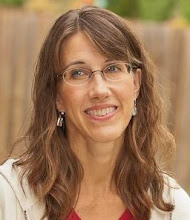I have not had much time to spend reading, this year, but this is one book I stayed with and finished in a number of weeks--fast for me, in this season of my life! (It helped that I brought it along to San Antonio.)
But I really enjoyed it because it addressed the question that most of us have privately asked since we first heard of Adolf Hitler: How could the Germans have let a guy like him rise to power?
This novel begins at the start of World War 1 and traces one young Prussian aristocrat from schoolboy to post-college days. He and his friends--representing Poland, Germany, Prussia, Protestant, Jewish, Catholic, Conservative and Communist perspectives--debate and discuss politics and philosophy when they meet together in the evenings to play as a string quartet. Other musicians, students, professors and parents join them occasionally, forming a rich tapestry of characters and viewpoints. From these discussions, the prevailing winds of the times are aired and explored, and as history unfolds, each election or political circumstance is analyzed from several points of view.
As things look worse and worse for the Jews and the German Conservatives, characters make choices that may save them or doom them. Precious belongings are distributed--some are saved, some lost forever. The metaphor of the volcano is well-chosen; it perfectly describes the sense of a devastating, destructive eruption so potentially imminent.
The volcano doesn't erupt in this novel; it ends before the second World War actually breaks out. You learn what happens to characters from a postcard reprinted at the end of the book. It was mentioned in the first chapter, which is really an epilogue, so then you want to re-read that. It's a sad ending.
Yet I left this book with a sense of hope. For one thing, the Church is a symbol of hope throughout the book. Imperfect as it was then (and is in our time), it is "more than German, wider, older and more resilient than Germany; and qualitatively different because she's a divine as well as a human institution," as one Catholic professor describes her to the main character, Max. Max, a Jew as well as a Prussian aristocrat, dies a Catholic, we learn in the epilogue. As the story unfolds, he is the seeker throughout, looking for God in the turmoil. His friend Adam is a firm atheist who is compelled to reach for God, and one of the most hopeful aspects of the book is how he eventually finds Him--and peace.
Adam writes this to Max:
Like you, I'm sometimes afraid...sometimes angry that all that education and effort and work should only have brought me--us--to this sense of precariousness, as if we were condemned by some malign destiny to live until we die on the edge of a volcano that is sure to erupt sooner rather than later and will kill us when it does. But then I think, Fine. Isn't it only human life tuned up to a higher pitch than usual? Isn't everyone always closer to death than he thinks? 'Keep awake because the master is coming at an hour you do not expect.' Easter Day yesterday--but every day too. Keep awake, Max.
I find hope in his question, "Isn't it only human life tuned to a higher pitch than usual?" In terrible circumstances, "life" can't be repressed. I think of The Diary of Anne Frank, and how much hope and joy she experienced even in confinement. If the worse happens--and in our own day, many worry that we are on a course that will destroy our own nation--even if the worse happens, life goes on. We'll lean harder on God than we ever have. We'll teach our children, by our example, to trust in God and not in themselves, or in a government, or in an economic system. We should always live life as if death were imminent. All God expects is that we stay awake, not letting ourselves be lulled into a complacent sleep. We stay awake, in Him, and do what He shows us to do, one day at a time. And so we will have hope, and not fall into despair.
Loved this story. I got a little bogged down in some of the philosophy, especially at the beginning. But I have always found that philosophy makes more sense if you skim through it quickly, so I suggest that approach, if needed! It's worth pushing through to enjoy the rare scope of this thoughtful book.
(Thanks, Kay!)
Saturday, April 17, 2010
Subscribe to:
Post Comments (Atom)

No comments:
Post a Comment